Can You Use Meat Thermometer for Rare Beef
When one orders a steak, that request is always followed by a question: How would you like it cooked? Many of us probably start with what our parents ordered. Eventually, we realize that maybe a porterhouse shouldn't still be red and perhaps well-done doesn't do a T-bone justice.
While pros know how to achieve the perfect level of doneness on any cut of beef, it can be difficult for home cooks to master this skill. How can you really know if a steak is cooked perfectly without cutting into it?
The best way to make sure you're cooking the perfect steak every time is to know how to achieve different levels of doneness. According to Gabriel Massip, executive chef at the Orlando steakhouse Capa, it all comes down to temperature and timing. Here are his top tips for cooking a steak to the perfect temperature every time.
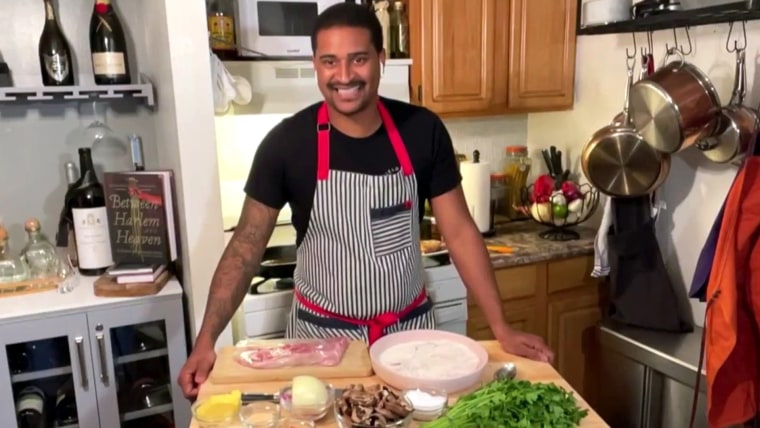
Always use a meat thermometer
Judging meat doneness only by its color is one of the most common food handling mistakes home cooks make. According to Massip, all home cooks should invest in a meat thermometer.
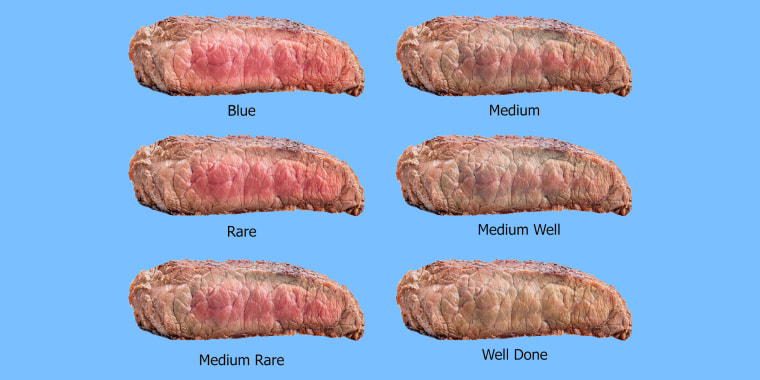
"It's important to not judge meat doneness only by color because it can vary based on the type of meat you are cooking, or the process you are using to cook it," Massip told TODAY Food. Another reason to use a thermometer instead of your subjective eyesight? Steak usually isn't a cheap cut of meat and since it can be less forgiving, cooking it requires more precision.
Temperature for rare steak
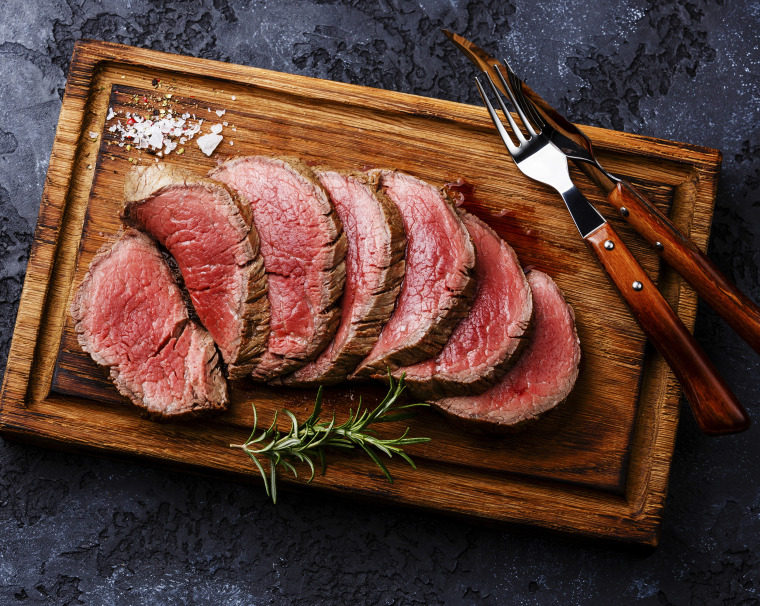
The desired internal temperature for a rare steak should be 120-125 degrees. For a 1-inch thick steak, this will take about 5 minutes of cooking on each side. Then let it rest for at least 5 minutes before cutting or serving.
Which steaks are best cooked rare? "The lean cuts are better," advised Massip, who added that the secret to getting a crusty sear on a rare steak starts with paper towels. "Dry your steak, making sure to remove any excess water. Season with salt and pepper, add grapeseed oil to a really hot pan and then sear."
Temperature for medium-rare steak
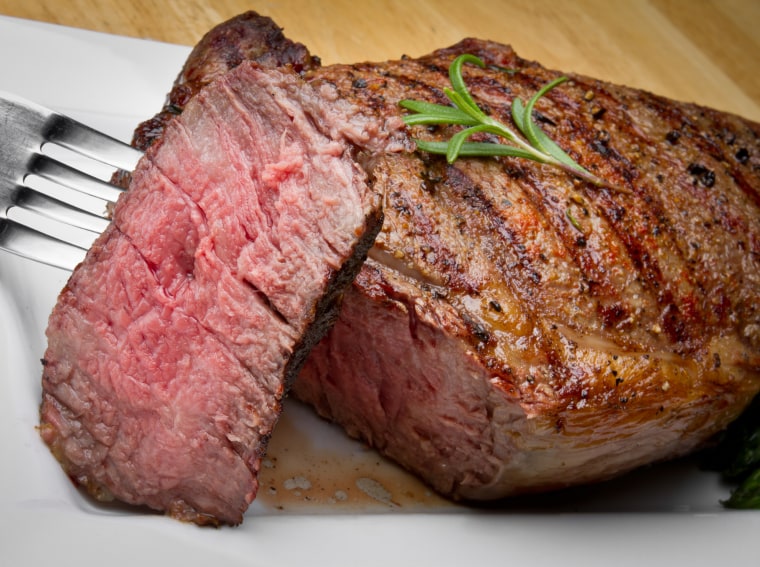
Medium-rare is the most-requested doneness at Capa where Massip's personal favorite is the 12-ounce bone-in filet. For medium-rare, aim for an internal temperature of around 130 degrees. For a 1-inch thick steak, this should take about 7 minutes of cooking on each side. Let the meat rest for up to 10 minutes before serving. Massip says stick with leaner cuts if you like your steak cooked medium-rare and recommends a hanger or strip steak.
Temperature for medium steak
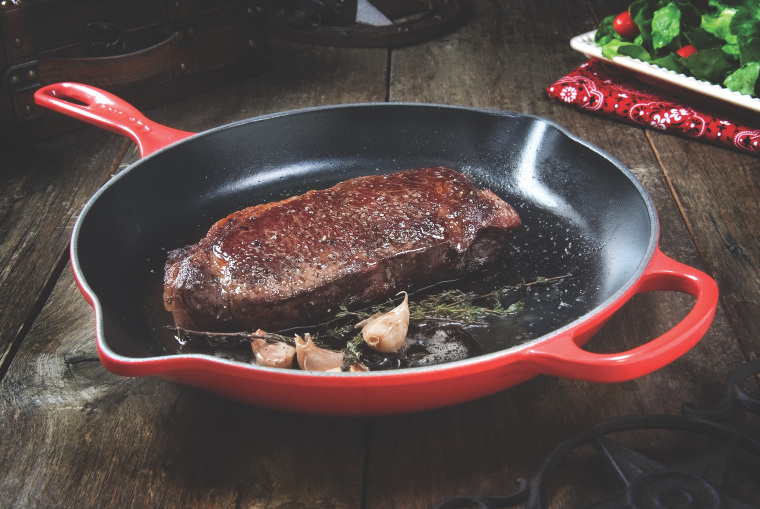
The internal temperature for a medium steak should be around 140 degrees. This takes about 10 minutes of cooking on each side for a 1-inch thick steak. As with a medium-rare steak, let it rest for about 10 minutes before serving. Massip said a rib-eye is a good option if you like your meat medium since it has a higher fat content and the heat will bring out more flavor from the fat. Plus, it won't be too dry.
Temperature for medium-well steak
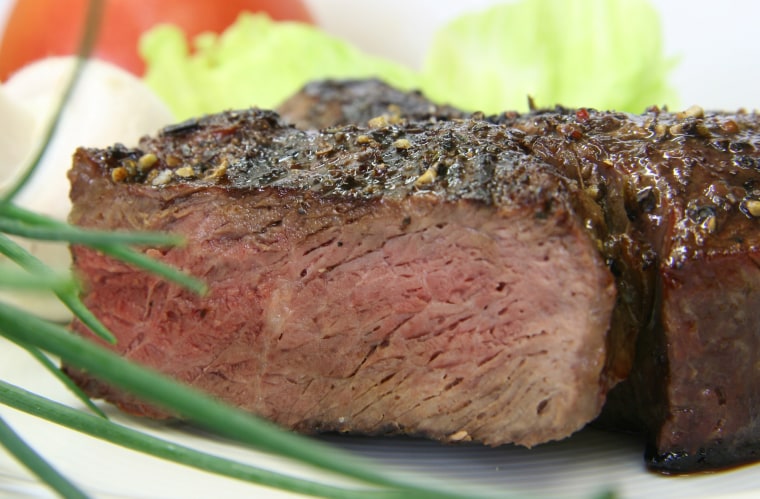
The internal temperature for a medium-well steak should be around 150 degrees. For a 1-inch thick steak, cook each side for about 12 minutes, then let it rest for about 10 minutes before serving. Steaks that hold up well at this level of doneness include rib-eye, bone-in strip and any Wagyu cut. According to Massip, cooking these steaks to medium-well will also prevent them from being too dry or too tough to eat as the heat breaks down the fibers.
Temperature for well-done steak
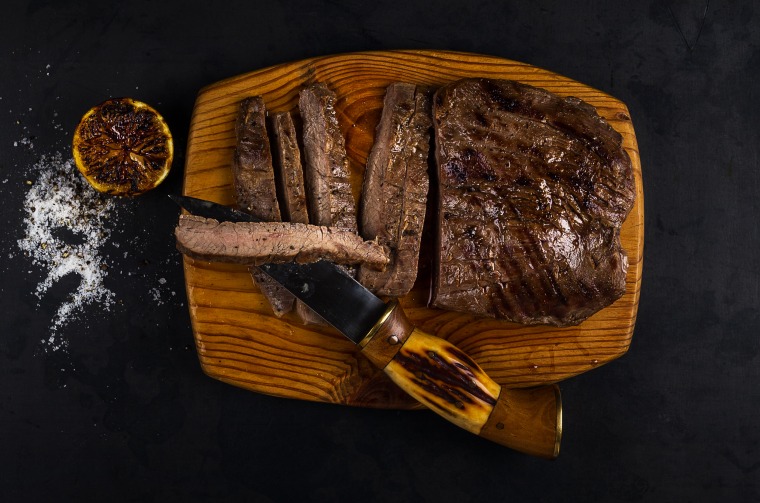
Despite what some steak snobs might say, it is actually OK (and not illegal) to like your steak well done, especially if know the right cut of meat to order. For a well-done steak, the internal temperature should reach 160 degrees. If you're cooking a steak that's 1-inch thick, this should take about 15 minutes on each side. Let it rest for about 10 minutes before serving. The best steaks to cook well-done are those with the highest fat content, like a porterhouse or rib-eye.
Now that you've mastered the art of cooking steak, try these delicious recipes:
Al Roker's Bone-In Ribeye Steaks
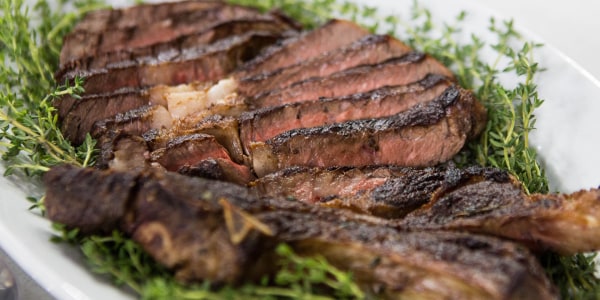
Perfect Oven-Cooked Steak
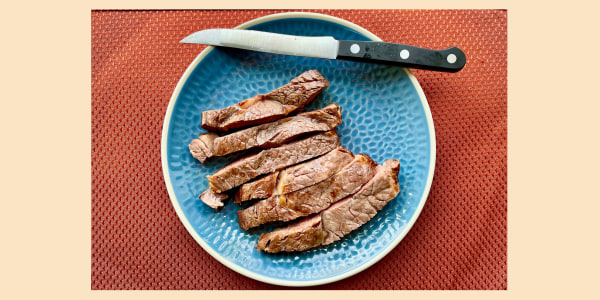
Caveman Tomahawk Rib-Eye with Chipotle-Lime Compound Butter
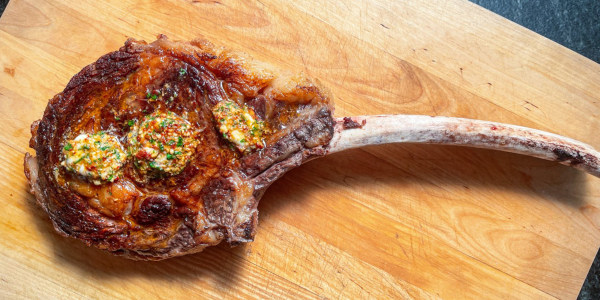
Adam Richman's Skirt Steak with Chimichurri
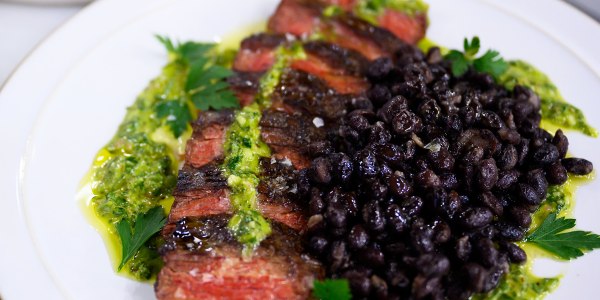
Reverse-Seared Strip Steak with Garlic, Butter and Rosemary
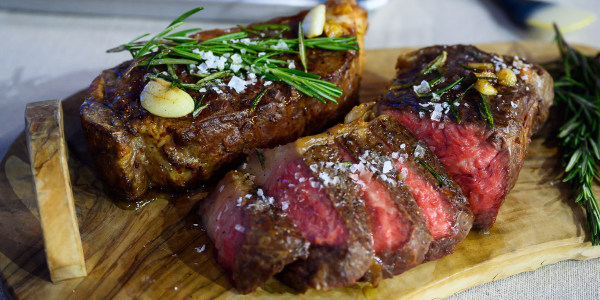
Vietnamese Steak Salad
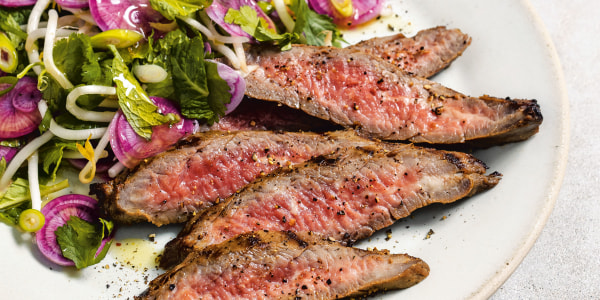
Related:
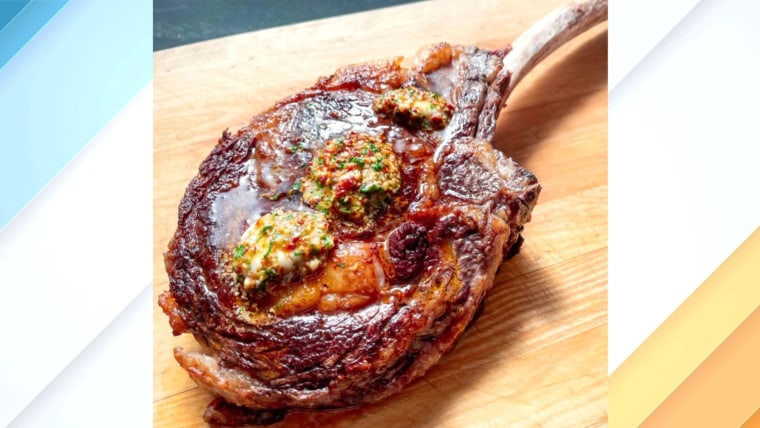
Source: https://www.today.com/food/how-cook-steak-perfect-steak-temps-every-time-t172152
0 Response to "Can You Use Meat Thermometer for Rare Beef"
Post a Comment